Did Viking women (and men) really wear the elaborate braided hairstyles that we see in modern re-imaginings on TV? The short answer is yes, though they might not have looked exactly as they do on today’s actors.
Today we are going to have a very quick look at the evidence for the Viking braid. We will then take you through how to achieve one of the most popular Viking braid styles for women today, step-by-step. Finally, we’ll look at a few Viking-inspired modern braided looks.
Did the Vikings Wear Braids?
While no photographs survive (obviously) and all the contemporary depictions that we have of the Vikings aren’t detailed enough to show specific hairstyles, there is pretty good evidence that braids were a popular hairstyle among the Vikings.
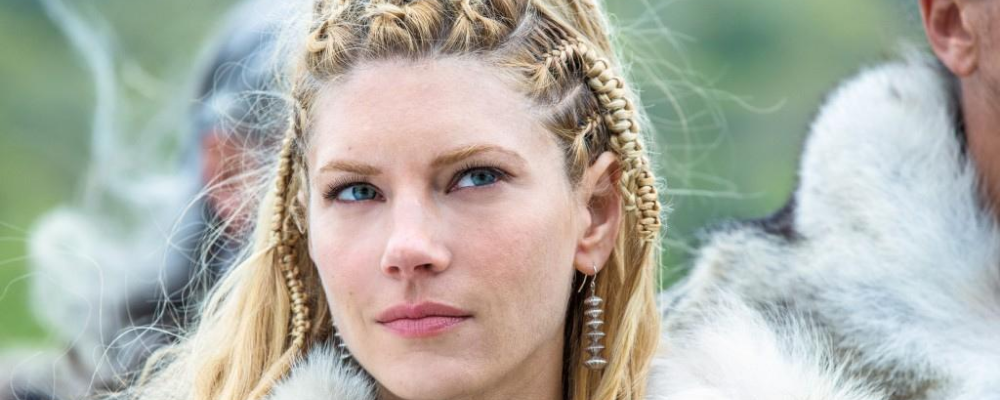
While hairstyles were not uniform across the Viking world, or across the centuries that the Vikings dominated, long hair does seem to have been popular among the Vikings. Some argue that both men and women kept their hair long to demonstrate that they were not thralls, slaves among the Vikings, that were required to keep their hair cropped.
But all Vikings, whether they were warriors or farmers, lived hard and active lives. That means that long flowing locks were not always convenient. Braids were a sensible way for keeping hair, both head hair and beard hair, under control, both when in battle and when sewing the fields.
Arab merchants writing about the Vikings confirm that it was not uncommon for at least some Vikings to adorn their hair with braids. Archaeological remains of what are assumed to be hair beads also indicate that this practical style was also a fashion statement.
The types of braids used would have depended on what the person was doing. For battle or hard labor, they probably wore tight braids with very little loose hair as the most practical style. During times of relaxation and celebration, they may have been more inclined to wear their hair flowing and free, perhaps accentuated with braids.
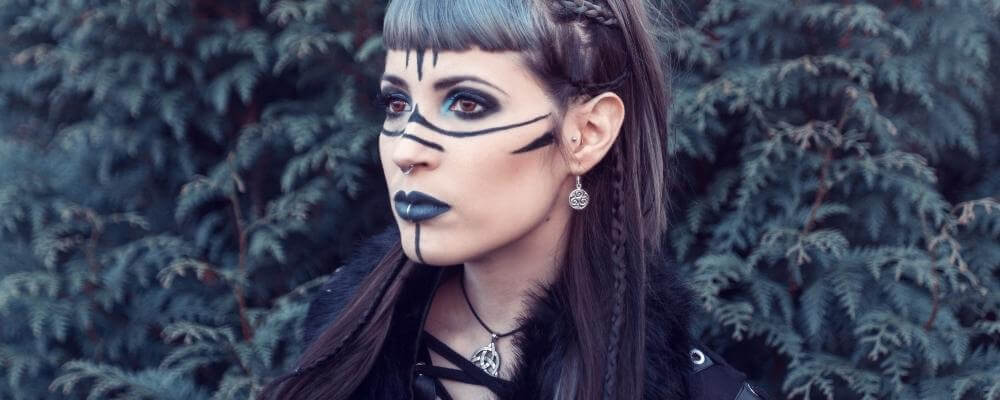
Viking Braid Style: Step-by-Step Guide
If you are a fan of the Viking braided hairstyle, you have probably already mastered the ponytail braid, a single braid starting at the top of your head, and also probably the long, slim braid that is designed to just accentuate your hair.
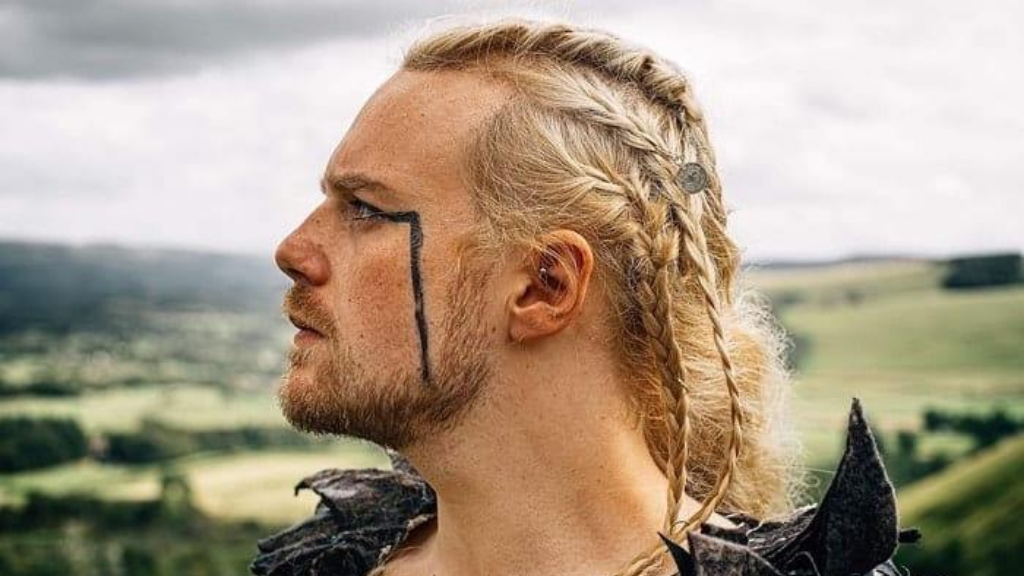
But what about the more complicated hairstyles, with various braids close to your head, creating a dramatic and textured look. Today we are going to talk you through exactly how you can achieve this look.
Step 1 : Prepare Your Hair
When you get advice on Viking braids you might often hear the advice that you should skip the shower. But this is not the Viking way. The Vikings actually bathed very often by the standard of the day, bathing at least once a week, when they would also have washed their hair.
That said, if your hair is too soft, silky, and squeaky clean, they won’t take the braids quite as well. So, do your braids two of three days after you have washed your hair, or used texturizer or dry shampoo to give you hair a little bit of grit.
Step 2 : Section Your Hair
The next step is to section off the part of your hair that you want to make into a close braid. You can do this anywhere on your head, on the top, on the side, at an angle. You can even do it in a swirl or a zigzag – though this is much easier to do on someone else than yourself.
For this, you will want a comb that has a sharp point on the handle. You scrape this along your scalp where you want the border of the braid to be, scooping up the hair that falls inside the two sides of the braid. If you pull the gathered hair away from your skull you will be able to see where the parts are, which will be the line of your braid.
How wide your braid will need to be will depend on how thick your hair is. The thicker your hair, the narrower you can make your braid. If you have thinner hair, you will need a wider braid so that you have more hair to work with.
Tie the hair that won’t be part of your braid back separately so that it doesn’t get in the way.
Step 3 : Start Braiding
Your hair is now ready to braid. For this type of hair that sits close to the scalp, you need to start with a small amount of hair that is at the front of your head where you are beginning, adding more hair as you move down your head.
So, take a small amount of hair at the front and split it into three equal sections. Commence braiding by crossing the outer section on the righthand side over the top into the middle, then repeat with the left-hand side.
Repeat this again and again, but every two or three cross overs, add a bit more hair to the section every time you move it into the center. You may want to do this every second or third time depending on the thickness of your hair and how many crossovers it takes to move along your head.
While crossing over the top is the standard way to make your braid, you can also do all of your crossovers underneath, which will make the braid stick out from your head a little bit more.
Step 4 : Tie Off Your Braids
How you tie off your braids will depend on how you want to style your hair. If you want to have various braids meet in a ponytail, or style them as individual long braids, small hair ties will do the trick.
If you want to have the braids on your scalp, and then long flowing hair, you will want to pin them in place.
For this look, you will probably also want to use some hairspray. A product not available to our Viking ancestors, but while will make a big difference to whether your hair stays in place.
Viking-Inspired Women’s Braided Hairstyles
So, that’s basically how you do it, what look you achieve depends on your imagination. Luckily, there is lots of inspiration to draw from. Here are some of our favorite looks using these kinds of close to the skull braids.
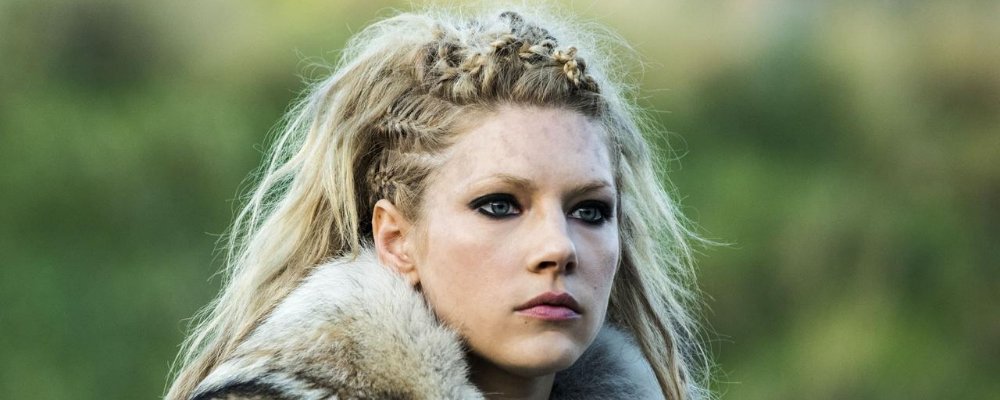
Lagertha’s braids on the side pull the hair in on one side and create a kind of undercut look, with the rest of her hair left free, showing off her luscious, flowing locks.
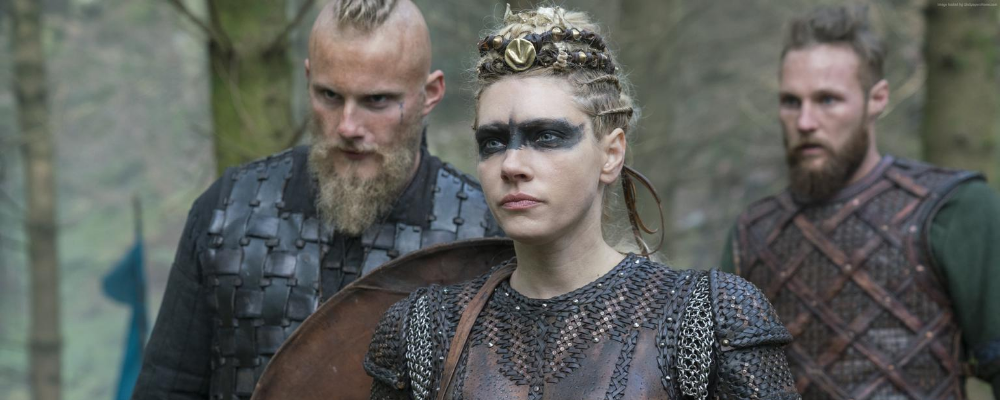
A more practical look for a shield maiden in battle or a farmer in the field, keeping all the hair tight into the head so that there is nothing to flow into the eyes (or for an enemy to grab hold of).
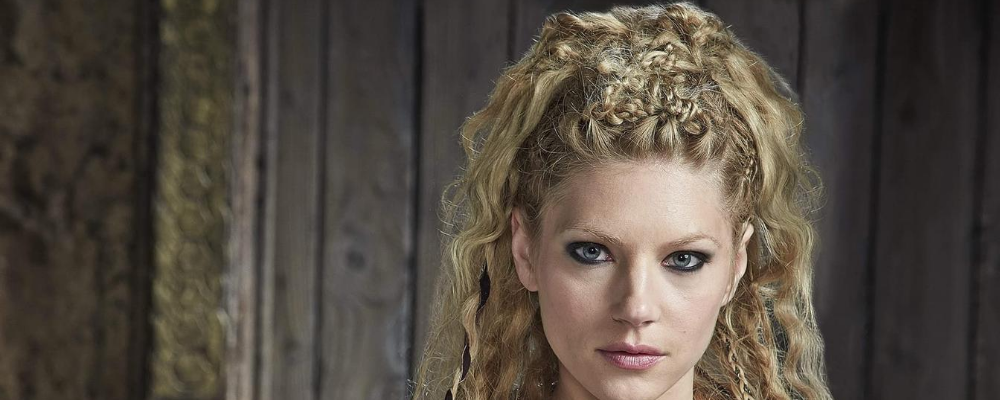
Lagertha’s more stylish battle look, she pulls all of her hair off her face using braids across the entire front of her skull, but then lets he main flow free.
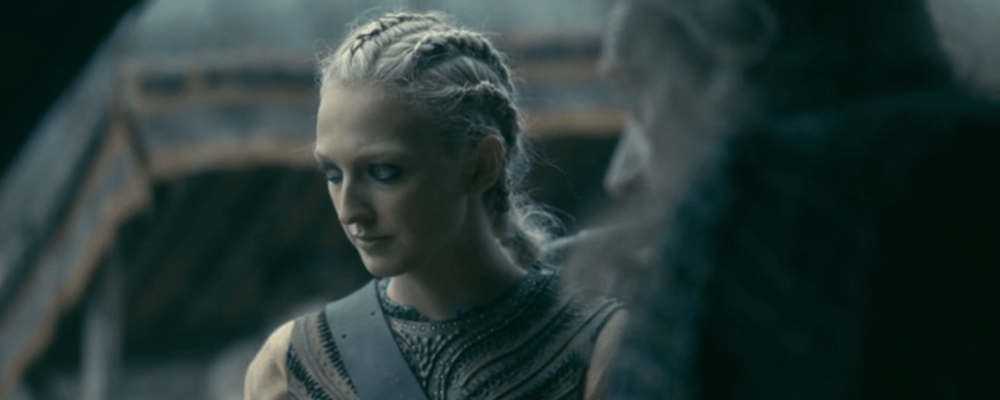
Creating a faux mohawk by pulling the hair in tight on the sides with small braids, and then giving the central section a lift with a large, loose braid.
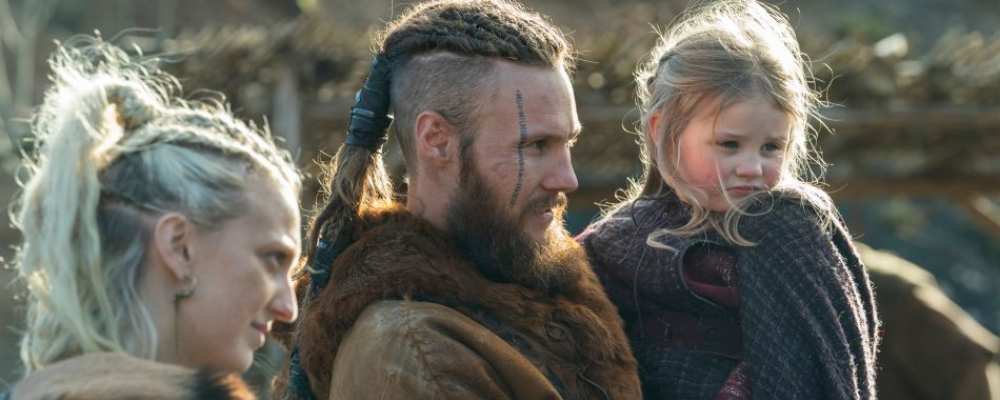
Add style to a ponytail by embellishing it with a few strategically placed braids.
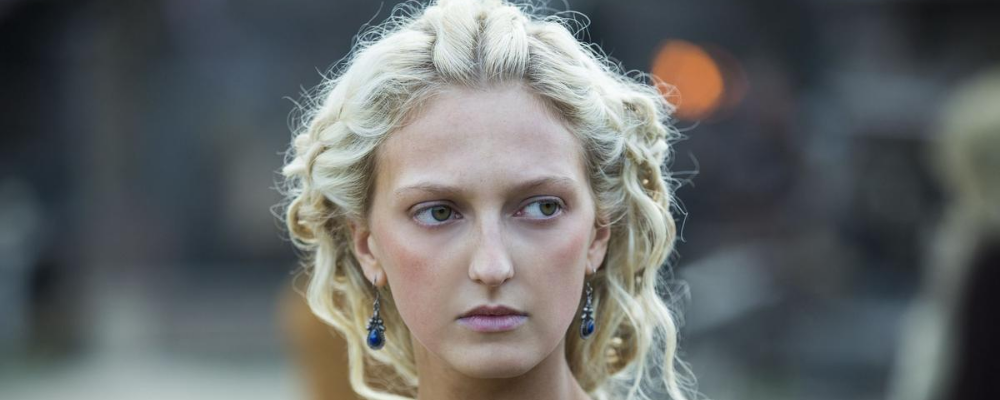
Make the braids a bit looser to give more texture and create a more laidback, elegant look.
So what do you think? Do you love the Viking braid? If so, what if your favorite Viking braid look?
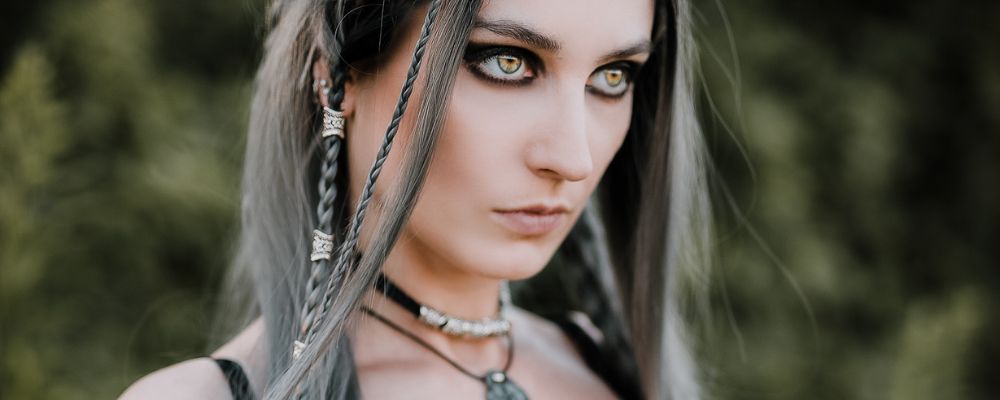
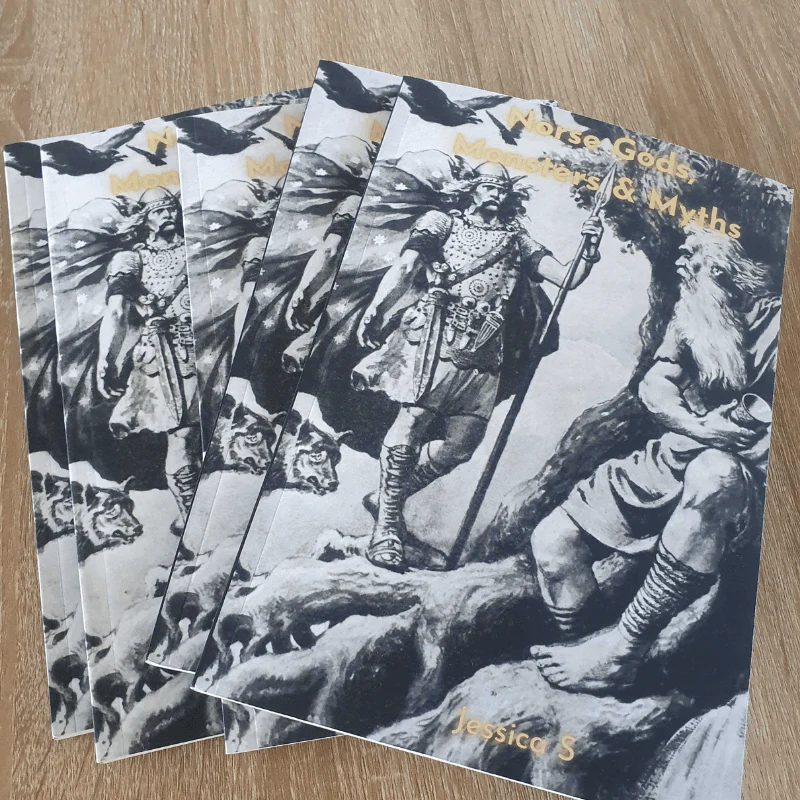
Get Your FREE e-Book
Norse Gods, Monsters & Myths
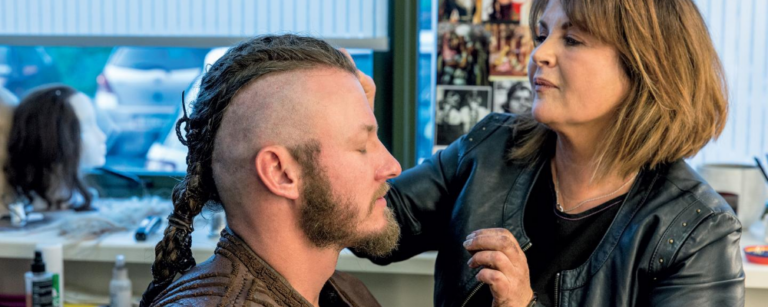

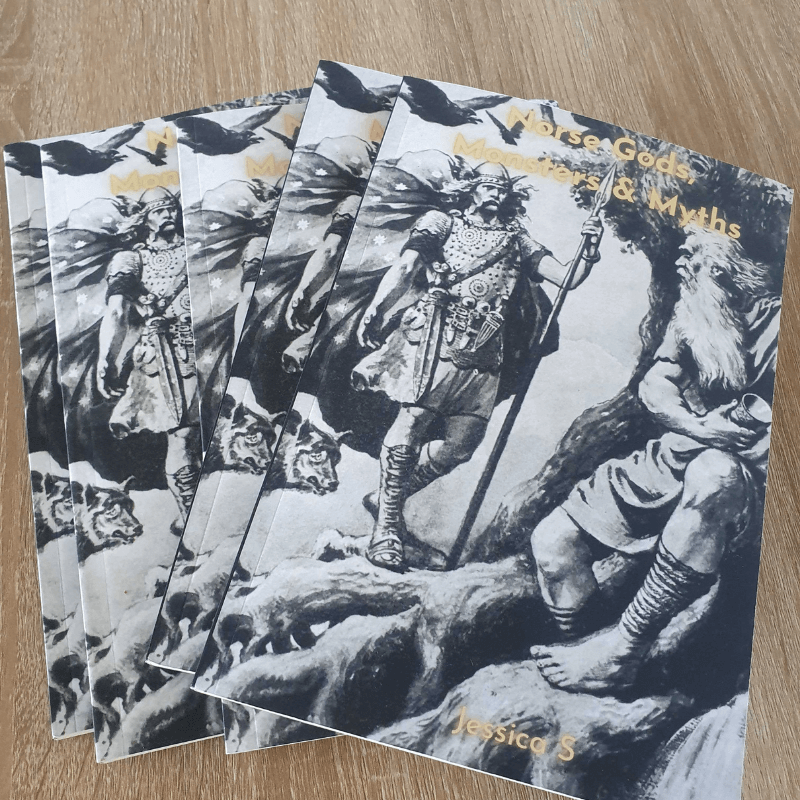
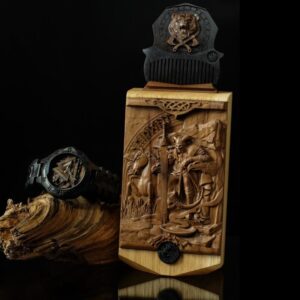




Yes, Vikings wear braids hair.